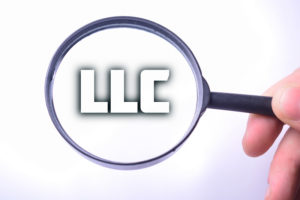An LLC’s Limited Liability Protection Is Not Unlimited
 Whether you are just establishing a business or growing your existing business beyond a sole proprietorship, you will likely reach a point where you want to ensure that your personal assets will not be vulnerable if lawsuits or other liabilities confront your business. In the world of small business, there are two primary structures that owners use to accomplish this goal: a limited liability company (LLC) or a corporation (Inc).
Whether you are just establishing a business or growing your existing business beyond a sole proprietorship, you will likely reach a point where you want to ensure that your personal assets will not be vulnerable if lawsuits or other liabilities confront your business. In the world of small business, there are two primary structures that owners use to accomplish this goal: a limited liability company (LLC) or a corporation (Inc).
Both entity types do what sole proprietorships do not– shield your personal assets from the reach of your business creditors. But the protection afforded by both entity types is not unlimited. If you own an LLC or an Inc but you fail to treat it as the separate entity that it is supposed to be, the courts may not see it as a separate entity, and the very insulation from personal liability which motivated you to form the LLC or Inc in the first place can disappear.
Taking Informality Too Far
Many small business owners choose to form an entity because of the many perceived advantages such as pass-through taxation and flexibility in ownership, management, and profit distribution. Additionally, LLCs do not have to comply with as many corporate “formalities” as corporations, often making them more attractive from an administrative perspective.
But LLC and Inc owners can be lulled into thinking that the flexibility and relative informality afforded by this structure means that they can also be equally informal with the company’s assets, accounting, finances, and management. This misconception can open the door for a determined creditor to “pierce the corporate veil” to collect outstanding debts and liabilities directly from the entity owner(s).
LLC as a “Mere Instrumentality” of Its Owners
Michigan courts apply the same principles to corporations and LLCs alike as to when a creditor can pierce the corporate veil. Specifically, an LLC’s owner can be held personally liable for the company’s liabilities if the entity:
- Was a “mere instrumentality” of another individual or entity;
- Was used to commit a wrong or fraud; and
- There was an unjust injury or loss to the plaintiff.
A court can find that the LLC was a “mere instrumentality” – or alter ego – of its owners if they fail to treat the LLC as a separate entity by doing such things as:
- Failing to maintain a separate bank account for the LLC.
- Commingling LLC and personal funds.
- Failing to document “loans” and other transactions between the LLC and its owners.
- Using LLC credit cards or funds to pay personal expenses.
As one Michigan appellate court neatly summed up the issue, “Essentially, where members do not treat an artificial entity as separate from themselves, neither will this Court.”
Sound Counsel for Small Business Owners
Whether you are a sole proprietor interested in discussing the advantages of creating a formal business organization to protect your personal assets or you have an existing entity and would like to review the company’s operations, ownership, or structure, we are here to help! To discuss your situation, please contact us – we’ll be happy to hear from you.